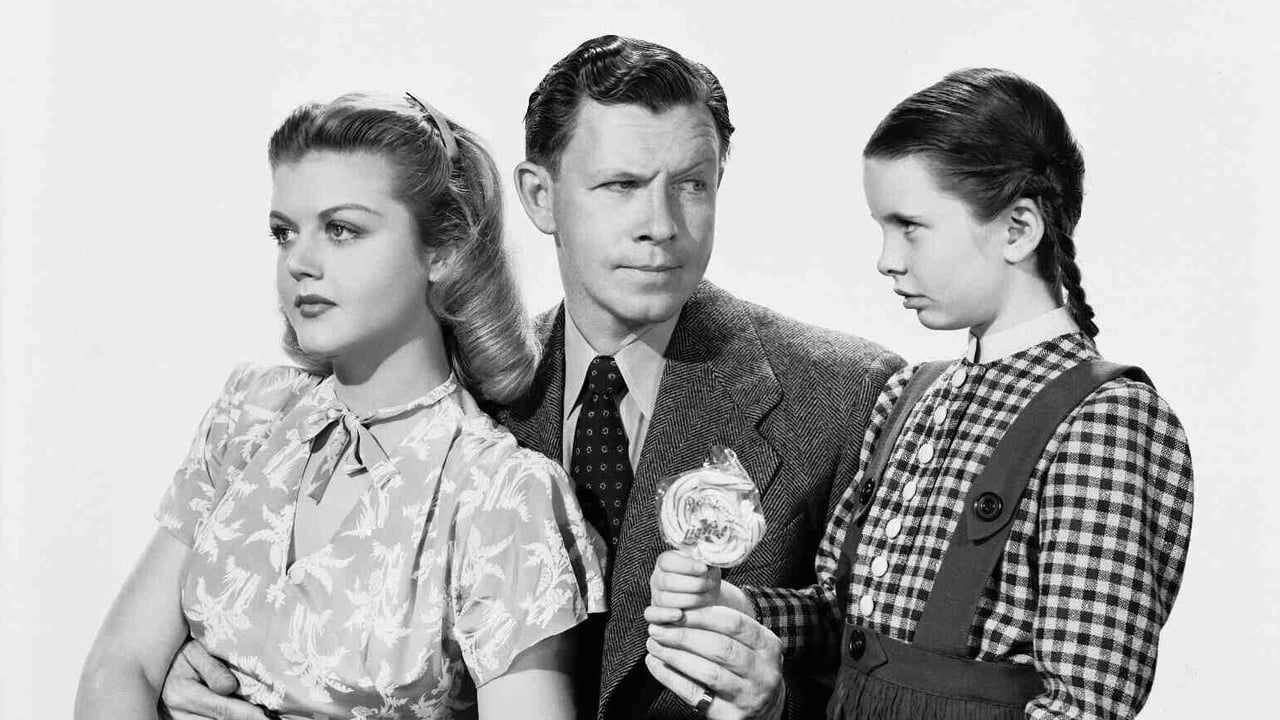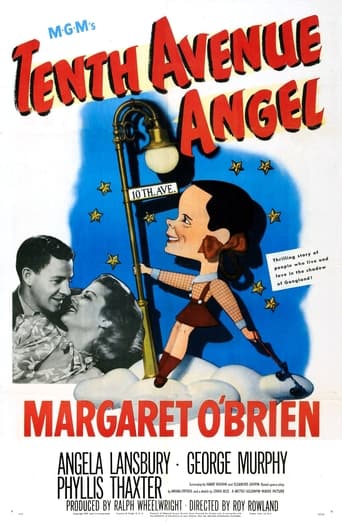Seraherrera
The movie is wonderful and true, an act of love in all its contradictions and complexity
Sammy-Jo Cervantes
There are moments that feel comical, some horrific, and some downright inspiring but the tonal shifts hardly matter as the end results come to a film that's perfect for this time.
Leoni Haney
Yes, absolutely, there is fun to be had, as well as many, many things to go boom, all amid an atmospheric urban jungle.
Ginger
Very good movie overall, highly recommended. Most of the negative reviews don't have any merit and are all pollitically based. Give this movie a chance at least, and it might give you a different perspective.
jhkp
Warm film with the usual top MGM production values, strong cast.When I finally saw this film I was surprised it was described as a "bomb" by Leonard Maltin. While it's not the greatest movie ever made, it's hardly a bomb, despite the problematic production history. Because retakes took so long, Margaret O'Brien is noticeably taller and older in some scenes than in others. The character's belief in fairy tales strains credulity in the scenes where little Margaret seems to be aging rapidly.One could argue, as well, that, despite the hardships supposedly being endured by the characters in their poor New York neighborhood, at the height of the Great Depression, they seem reasonably well fed, dressed, and housed. The apartment where Flavia (O'Brien) lives is quite large, for example.But there are some very true things in the film, the experience of being an only child, living among adults; the realities of readjustment for an ex-con (George Murphy). Many of the realities are not in the scenes or the lines, but in Margaret's and George Murphy's faces.The cast is great and there's a nice Christmas atmosphere in the scenes that wrap up the story.
fairken
Some reviews may note that the story between Flavia's Aunt (Angela Landsbury) and Steve is a "filler". I don't agree. Although clearly a sub-plot to the story about Flavia coming to terms with growing up and what to believe, the relationship between the Aunt and Steve is very pertinent to the story in that much of the drama is also about Steve, not just Flavia. The ending is very moving and the 4th of July speech delivered by Flavia is something you have to see to believe. I highly recommend this film, which is a tribute to films about real life. The problems faced by the characters are real life issues. Questions about faith, the nature of truth and lies, and how difficult it can be to get back on the right path.
moonspinner55
Margaret O'Brien doesn't look or sound like a Depression-era tyke from the New York tenements who knows everybody on her block and what they're up to...however, she's self-assured on the screen and pretty much carries the day here. Thin story has an optimistic neighborhood girl heartbroken to learn that all those 'little white lies' adults tell children (such as one about mice turning into money) are just made-up stories, though she comes to rely on one about kneeling cows in order to save her dying mother's life. M-G-M tinkered with this thing in post-production for 18 months, and then only released the picture sporadically. One can see early on there simply wasn't enough material here for a feature, with a side-plot regarding O'Brien's aunt getting reacquainted with an ex-con sweetheart used simply as filler. Still, there's a maniacally patriotic speech given by little Margaret on the Fourth of July that has to be seen to be believed, and the finale (though engineered for heart tugging) is effective. The editing and continuity are predictably bad considering the film's internal troubles and reshoots, yet O'Brien roller-skates through it all rather blithely. ** from ****
bmacv
A second- or third-string feel-good movie trundled out perennially as the holidays draw nigh, Tenth Avenue Angel will charm or irritate viewers in proportion to their responses to Margaret O'Brien, who stays front and center throughout. Best known for stealing Meet Me in St. Louis away from Judy Garland, she was 11 years old at the time of this, her 17th film role, and her precocious tomboy routine was running on fumes. The story's set in the Depression year of 1936, in the shadow of the El in Hell's Kitchen, where O'Brien lives in proud poverty with her parents and aunt (Angela Lansbury). Lansbury's set to marry George Murphy, who's been `away;' O'Brien thinks he was in Australia, although he was doing a stretch up the river. Coming to learn the truth over the course of the movie, and in the process discarding other falsehoods foisted on childhood, ushers her from girlish innocence to the dawning of grown-up wisdom. It's that kind of movie.Not that there's anything wrong with that, but....In almost a counterrevolutionary movement against the cynical world-view of newly-hatched film noir, the late ‘40s also saw a spate of movies whose view of American family life was glacéed in sentimentality. A Tree Grows in Brooklyn (which this movie resembles, with petty crime instead of alcoholism) was one; that canonized Christmas classic It's A Wonderful Life another. (I Remember Mama was the pick of the litter.) Struggling to make ends meet was gift-wrapped as ennobling, good for stiffening the backbone; hardship never bred discord or dysfunction. Maybe being poor once had its plus side, when most people were barely staying afloat in their small and leaky crafts. Or, if not, maybe the myth was necessary. At any rate, most of us will no doubt be finding out the truth for ourselves in very short order.

